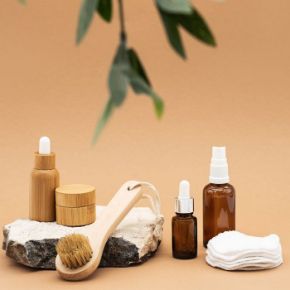
Masturbation is a normal and healthy sexual activity. It's a natural way for individuals to explore their bodies, experience pleasure, and learn about their own sexual responses. It can also be an excellent form of a self care activity.
It offers many advantages to both mental and physical well-being. Among the healthy benefits are reduced stress, improved sexual experience, elevated mood, increased energy levels, and improved body awareness. It's advantages extend beyond cardiovascular and sleep improvements to include numerous other benefits.
Masturbation allows you to have control over the situation and get to know your body at your own pace. It also releases 'feel-good' chemicals such as:
Dopamine:
Often referred to as the 'feel-good' neurotransmitter, Dopamine plays a key role in pleasure and reward cicuits in the brain. It's released during sexual arousal and orgasm, contributing to the sensation of pleasure and satisfaction.
Oxytocin:
Often called the 'love hormone or 'cuddle hormone', Oxytocin is released during sexual activity, including masturbation. It promotes bonding, trust, and intimacy, and it can also induce feelings of relaxation and contentment.
Endorphins:
Endorphins are natural painkillers produced by the body. They are released during sexual arousal and orgasm, which can contribute to feelings of euphoria and well-being. Endorphins can also help alleviate stress and anxiety.
Prolactin:
Prolactin levels increase after an orgasm. it's involved in the refractory period, during which a person might experience reduced sexual arousal and be less responsive to further sexual stimulation. Prolactin is also associated with feelings of sexual satisfaction and relaxation.
Serotonin:
Serotonin is a neurotransmitter involved in mood regulation and feelings of well-being. It's levels may fluctuate during sexual activity, potentially contributing to the overall emotional experience. Experiencing the highs and maybe even the lows,this guys the culprit.
These chemicals work together to create the pleasurable sensations and physiological responses associated with sexual arousal and orgasm. However, it's important to note that individual responses to masturbation and sexual activity can vary, and factors such as context, mood, and personal physiology can influence the release and effects of these chemicals.
Despite being a common behavior, masturbation is sometimes surrounded by myths and misconceptinos. It's important to debunk myths and promote accurate information about masturbation to reduce stigma and promote sexual health and well-being.
Good luck!
Always remember to listen to your body's intution and signals on what's for you and what's not. Not everyone is the same, which leads to everyone's body responds differently. Masturbation is a perfect way to explore and get to know your body's needs personally.

Much Love,
The Staff @ Adult Connection!
























